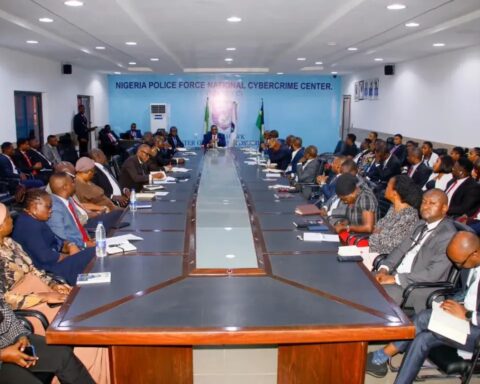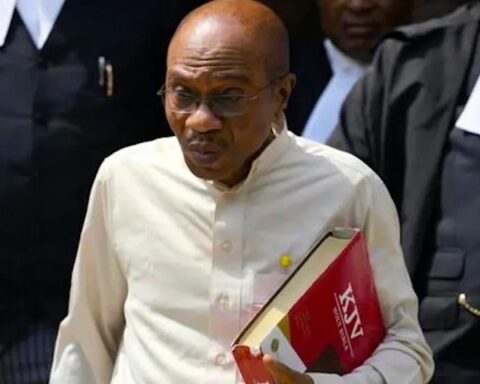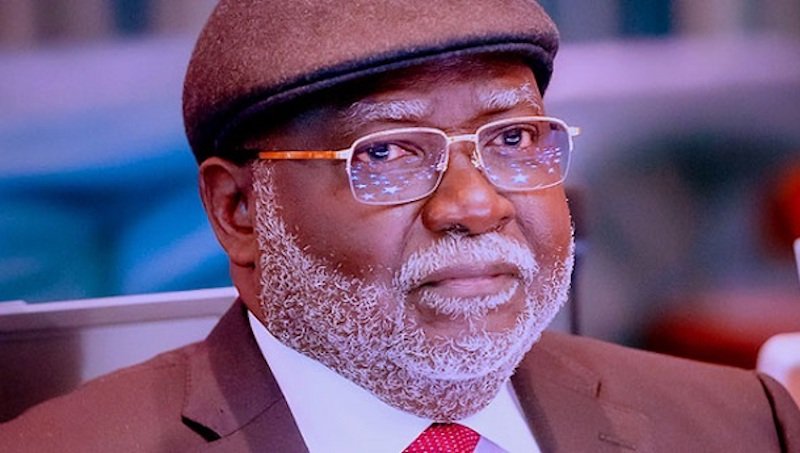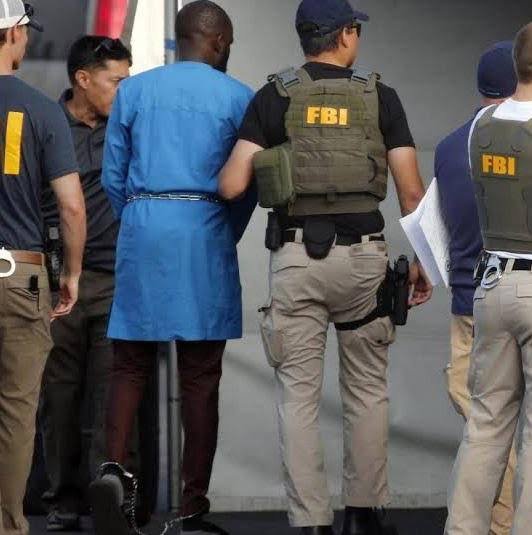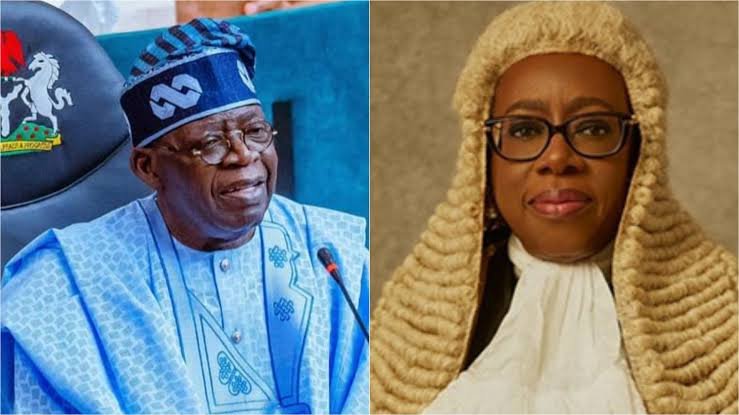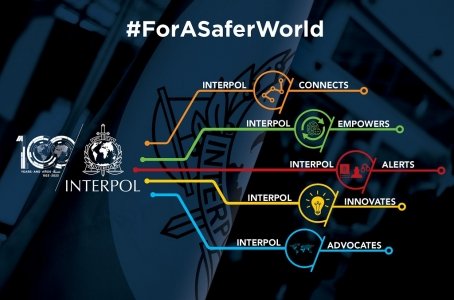By Chijioke C. Dike, Esq
THE incident that took place at the domestic wing of the Murtala Mohammed International Airport last Sunday, 10th of August 2025 is no longer news not only in Nigeria but all over the world as the said incident went viral within minutes of its occurrence. Thanks to the power of the social media.
So far, the available story of what led to the incident is the one from the management of Ibom Air. I am yet to to get the side of the story from the passenger, Comfort.
However, from one of the narratives attributed to one of the passengers on the aircraft, assuming he is correct, and coupled with the statement issued by Comfort’s family, the airline will have some explanations to make.
However, the view I expressed here has nothing to do with who is right and or who is wrong in the incident.
Rather, it deals with the propriety or otherwise of the jurisdiction of a State Court (High or Magistrate) in the Charges preferred against Ms Comfort before the Magistrate Court of Lagos State (see the five-count charge above).
It is worthy to note that there is an agreement that the incident started from the Airport in Uyo, inside an aircraft (air-borne or on ground) and the Airport in Ikeja, Lagos.
2. In the charges against Comfort, it is ONLY in Count One that the Airport, the main scene of the alleged crime, is mentioned.
It is stated in the said Count that the offence therein is against a Federal legislation.
In counts 2, 3, 4 and 5 the Defendant, Comfort, is alleged to have committed offences contrary to the Laws of Lagos State and within the Ikeja (or aforementioned) Magisterial District.
It is my view that it is not enough for those Counts to merely state that the offences were committed within the “aforementioned magisterial district”, notwithstanding that it is common knowledge that Murtala Mohammed International Airport (domestic wing) is situate in Ikeja.
For the purpose of the views expressed here, it is correct to assume that those Counts have embedded in them the scene of the alleged offences(the Airport in Ikeja, Lagos) and not necessarily the Ikeja(or aforementioned) Magisterial District.
3. Jurisdiction is the legal power and authority of a Court to make a binding decision. It being the live wire of an adjudicatory process, a Court will act in vain if it acts WITHOUT the jurisdiction over the subject or the subject-matter before it: STANDARD CHARTERED BANK VS ADEGBITE(2019) 1NWLR (pt.1635)348.
Cases conducted without jurisdiction, no matter how well conducted or handled, are a waste of time as the entire proceedings will amount to a nullility: ENTERPRISES BANK LTD VS AROSO(2014)3 NWLR(pt.1399)256.
It is trite that jurisdiction is conferred by Statute and not by Rules of Court.
It is also trite that parties CANNOT by acquiescence donate jurisdiction to a Court that substantively lacks it.
The issue of jurisdiction being so fundamental; it can be raised at any stage of the proceedings: NAFDAC VS ONWUKA(2014)4 NWLR (pt.1398)593.
In Civil and Criminal matters it is the Statement of Claim and Charge/Information respectively that determines the jurisdiction of the Court subject to the provisions of the Statute in those regards.
4.The jurisdiction of the Courts (High to Appellate) in Nigeria are conferred by Statute particularly the Constitution including the Statutes that created the Courts. In this regard, section 251(1) in the Constitution of the Federal Republic of Nigeria (as amended) provides:
Notwithstanding anything to the contrary contained in this Constitution and in addition to such other jurisdiction as may be conferred upon it by an Act of the National Assembly, the Federal High Court shall have and exercise jurisdiction to the exclusion of any other Court in civil cases and matters:-
(k) aviation and safety of aircrafts.
(3)The Federal High Court shall also have and exercise jurisdiction and powers in respect of criminal causes and matters in respect of which jurisdiction is conferred by subsection (1) of this section.
Aviation is not defined in the Constitution but is generally known as the use of an aircraft for personal purposes or for carriage of passengers, baggage and cargo for reward.
In KLM DUTCH ROYAL AIRLINE VS. TAHER(2014)3 NWLR(pt.1393)137 at 190 the Court of Appeal held that aviation is the operation of aircraft, the design, development and production of aircraft or the art or science of flying or operation or use of aircraft and that for there to be carriage of passengers by air, the passenger must have entered or boarded the aircraft and be in the process of being carried or conveyed.
The reason for the omissions or exclusion of the scene of the incident in Count 2-5, if deliberate, has been made clear with this.
The provisions of section 251(1)(k) and (3) in the Constitution are plain, clear, simple and unambiguous. In interpreting such provisions the Court adopt the literal method of interpretation to the effect that it is not necessary to read into them any word other than to apply their ordinary meaning: ARIBISALA VS AMCON(No.1)(2025)8 NWLR(pt.1991) 1 SC, 38 E
There is a plethora of authorities on this. There are also rare exceptions when the Court may depart from literal interpretation none of which is applicable in the instant section of the Constitution in issue.
In my opinion, there is no ambiguity in the provisions of subsection(3) of section 251in the 1999 Constitution (as amended) that will confer jurisdiction on the State Courts (including the Magistrate Court) in matters …in respect of criminal causes and matters in respect of which jurisdiction is conferred by subsection (1) of section 251.
5.It is in the light of the unambiguous provision of subsection(3) of section 251 in the 1999 Constitution(as amended) that I do not agree with the Supreme Court decision in FEDERAL REPUBLIC OF NIGERIA VS OKEY NWOSU(2016)17 NWLR (pt.1541)226.
In that case the apex Court held that subsection (3) of section 251 in the Constitution by mere omission of the word exclusive does not confer exclusive jurisdiction on the Federal High Court in matters in which exclusive jurisdiction is conferred on it in sub-section (1) of section 251.
The word exclusive needs not appear in subsection (3) before the FHC would assume exclusive jurisdiction in criminal matters arising from civil matters in which exclusive jurisdiction is conferred on it in subsection (1) of section 251.
I am of the firm opinion that the exclusive jurisdiction in criminal matters flows or derives from the exclusive jurisdiction in civil matters conferred on the Federal High Court. In particular, I submit that the word “shall” as appears in subsection (3) of section 251 puts beyond doubt the intention of makers of the Constitution to confer exclusive criminal jurisdiction on the FHC in matters it has conferred exclusive jurisdiction on that Court in respect of civil matters.
The basis for the denial of exclusive jurisdiction of the FHC in respect of criminal matters arising from exclusive jurisdiction in civil matters arose from a wrongful importation of the absence of the word “exclusive” and the fact that there were no Federal legislation in respect of certain crimes such as stealing, assault, murder, causing grievous bodily harm, etc. However, this only shows lacunae in the law which, in most cases, is not the business of the Court to fill.
More importantly, as far back as 2014 in ADETONA VS IGELE GENERAL ENTERPRISES LTD (2014)7 NWLR (pt.1247)535 SC, 564E-F, the SC held that a High Court of a State lacks jurisdiction to entertain matters on fundamental rights, although brought pursuant to section 46(2) in the Constitution, where the alleged breach arose from a transaction or subject-matter which falls within the exclusive jurisdiction of the Federal High Court as provided by section 251(1) in the Constitution.
Unfortunately, the apex Court did not advert its mind to this earlier decision which, in my opinion, is very much in accord with the provisions and intendments of section 251(3) in the 1999 Constitution (as amended).
6. Conclusion
The Magistrate Court as well as the High Court of Lagos State and indeed any other State lack the jurisdiction to try the Charge brought against Ms. Comfort Bob. The facts leading to the Charge occurred inside the aircraft and within the exclusive aviation jurisdiction of the FHC. The FHC is the primary Court for aviation related matters in Nigeria. Its jurisdiction is firmly exclusive in respect of aviation matters: civil and criminal.
Consequently, the carriage of passengers by air including crimes committed during such carriage falls within the exclusive jurisdiction of the Federal High Court.
As the matter involving Ms Comfort Bob has shifted to the Court all eyes are now on that Court in the expectation that justice must be done though the heavens fall.
Follow us on all social media platforms @dailyquery for news and analyses around the globe.

